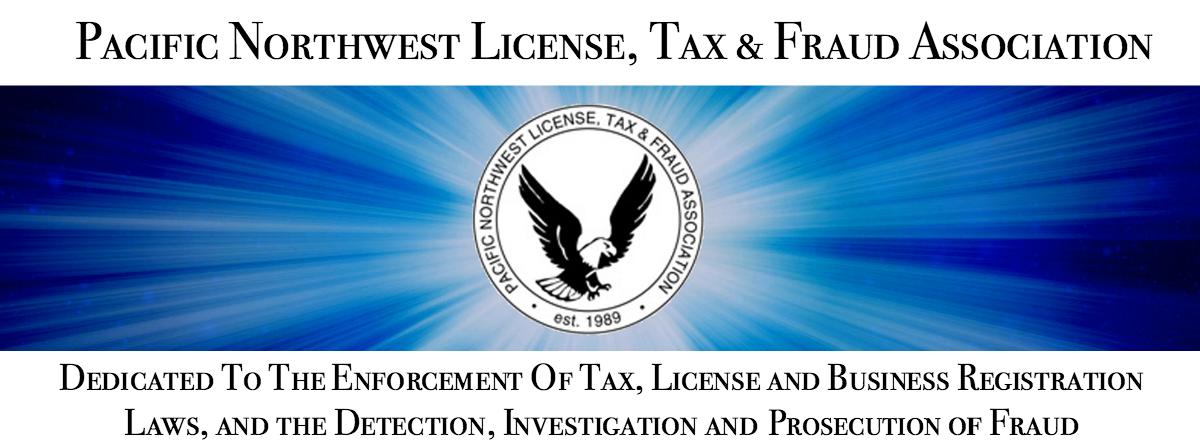
By-Laws
(As amended November 1, 2015)
ARTICLE I
PROCEDURES
- Quorum: A quorum for conducting business of the membership shall consist of those members attending a regularly scheduled meeting of the association, or those members attending a special meeting of the Association held after at least ten (10) days’ notice to the membership of the time and the place for the special meeting.
- Vote: Unless otherwise specified, the business of the Association shall be conducted by majority vote of a quorum. PNLTFA business may be conducted by telephone or electronic mail. The results will be recorded for inclusion in the Minutes of the next regularly scheduled board meeting.
- Rules: Meetings of the Association shall be conducted pursuant to Roberts Rules of Order (revised).
- Informal: The rules as to procedure may be suspended, and the meetings Rules conducted informally, upon a vote of two-thirds (2/3) of the membership attending.
- By-Laws: These by-laws shall become effective upon adoption by a majority vote of the members attending the first quarterly meeting following its adoption of the Executive Board.
- Amendment: These by-laws may be amended by a two-thirds (2/3) vote of those members attending a regularly scheduled meeting, or upon a two-thirds (2/3) vote of those members attending a special meeting of the association, provided that at least one (1) week prior to said special meeting, a copy of the proposed amendment or amendments is mailed or otherwise provided to the membership.
ARTICLE II
MEMBERSHIP
Membership in the PNLTFA shall consist of persons from Federal, State, Provincial, County, and Municipal agencies. Membership may also include persons from the private sector. Members shall express an interest in matters pertaining to fraud and financial investigations. Members shall maintain a high moral character, act ethically and honestly, and abide by the rules and regulations of their agency or employer. Failure to do so may result in expulsion from the Association.
The membership shall consist of two categories:
1) Regular members: Shall be dues paying individuals, employed by government / public agencies, with an interest in matters pertaining to fraud and financial investigations. Members employed by the banking or insurance industries must be involved in fraud and financial investigations as their primary job responsibilities. A regular member may participate in all Association affairs, to include attendance at training and information exchange sessions, serving on committees, voting, and holding an Association office.
Members from the banking and insurance industries must be initially sponsored by a current member. The membership committed will review the application, and the recommendations of the membership committee will be forwarded to the Executive Board.
Group Rates: A reduction of 10% shall apply to annual membership dues for organizations with twenty (20) or more registered members. Membership applications and annual dues must be received by January 31st to be eligible for the 10% reduction.
2) Honorary members: Shall be for a term of one year, and will be non-dues paying. Honorary members shall be selected by the Executive Board from persons who are distinguished because of their office, title, or special service to the Association, or who have been outstanding in the field of crime prevention, detection, or investigation.
- Former Executive Board members who have completed at least one (1) year in office before 2002 will be honorary members for as long as they meet the general qualifications for regular membership. Former Executive Board members elected after 2002 will be considered for honorary membership status based on the requirements of paragraph three (3).
- Honorary memberships are subject to annual review by the Executive Board to determine if their honorary membership will be renewed.
3) The Executive Board may approve for membership in the Association, by two-thirds (2/3) majority vote of the board, an individual who does not meet the requirements in sections one (1) and two (2):
- When the individual provides a service to Federal, State, Provincial, County, and Municipal agencies and not to the public at large. And / or
- The Executive Board deems the prospective member to be a benefit to the Association.
Members shall not use the Association membership or information derived from the Association for improper purposes. Neither the name of the Association nor the membership therein shall be used for commercial purposes. The name of the Association or membership therein shall not be used for endorsement of political candidates. Members who violate the by-laws are subject to expulsion from the Association by a majority vote of the Executive Board.
Any individual desiring to become a member of the Association shall comply with the following:
- Complete a Pacific Northwest License, Tax, and Fraud Association membership application.
- Agree to abide by the constitution, amendments, by-laws, rules, and regulations, and / or decisions of the Executive Board, and
- Agree to abide by Local, State, and Federal privacy laws, rules, and regulations.
- Those from the private sector must have the signature of a sponsoring regular current member of the Association upon the application.
- Application shall be accompanied by a check or money order, in U.S. funds, payable to Pacific Northwest License, Tax, and Fraud Association for the amount of the current annual dues. All applications shall be subject to review and approval by the membership committee.
ARTICLE III
FISCAL MANAGEMENT
The fiscal year of the Association shall be the calendar year.
Dues shall be determined by a majority vote of the Executive Board, subject to ratification by a majority of the membership attending the next regularly scheduled membership meeting. Initial membership dues shall be paid in full upon acceptance of the Associations’ membership application. Dues for annual renewal of membership shall be paid in full by January 31st of each year.
All funds shall be deposited in the name of the Association, in such bank or banks, as the Executive Board shall direct. All checks, drafts, or other orders for the payment of money, notes, or other evidences of indebtedness issued in the name of the Association shall be signed by the officers of the Association as determined by the Executive Board. The balance, if any, of all money received by the Association from its operations, after the payment in full of all debts and obligations, shall be used and distributed exclusively for purposes determined by the Executive Board.
The Treasurer of the Association shall maintain the Corporation financial records and will present a financial report at each membership meeting. The Executive Board shall review all expenditures quarterly. The Treasurer will also prepare a year-end financial statement, to be reviewed by the Board, no later than January 31st of each year. The Association books and records shall be made available for inspection by any member upon request.
ARTICLE IV
OFFICERS
Officers of the Association shall consist of a President, Vice President, Secretary, Second Secretary, and Treasurer. Officers shall be elected to serve a term of two (2) years. The offices of President, Second Secretary, and Treasurer shall be filled in even years, and the offices of Vice President and Secretary shall be filled in odd years.
PRESIDENT: The President shall preside at all regular and Executive Board meetings. The President shall administer the duties, affairs, and charter of the Association as prescribed by the Executive Board during the term of office. The President shall appoint committee chairs.
VICE PRESIDENT: The Vice President shall perform the duties of the President upon request of absence. The Vice President shall also perform other duties as prescribed by the president or the Executive Board.
SECRETARY: The Secretary shall keep full and complete minutes of all meetings of the Executive Board. Minutes of meetings shall be provided to all officers and Board members for inspection, and be available to all members of the Association at quarterly meetings. The Secretary shall issue notice of all meetings of the Association, update the membership roster, conduct general correspondence of the Association, and be the custodian of all Association records except those maintained by the Treasurer. The Secretary shall perform other duties as prescribed by the Executive Board, and provide all records to the newly elected successor.
SECOND SECRETARY: The Second Secretary shall share in all duties and responsibilities held by the Secretary.
TREASURER: The Treasurer shall receive and account for all monies of the Association. A financial report shall be presented at each regular meeting, board meeting, or upon request by the Executive Board. All financial records shall be maintained by the Treasurer and provided to the newly elected successor.
ARTICLE V
BOARD OF DIRECTORS
The Board of Directors shall consist of six (6) members. Directors shall be elected to serve a term of two (2) years. Three (3) director positions shall be filled in even years, and the other three (3) positions shall be filled in odd years.
ARTICLE VI
EXECUTIVE BOARD
The Executive Board shall consist of the Officers and the Board of Directors. The Executive Board shall be responsible for goals, policies, and general business of the Association.
NOMINATIONS AND ELECTION OF EXECUTIVE BOARD
- Any regular, associate, or honorary member may submit nominations for any office, provided that such nomination is in writing and submitted to the Nominating Committee at least sixty (60) days prior to the spring training seminar. The Executive Board shall act as the Nominating Committee and shall make nominations for offices not nominated by the membership, and may make nominations in addition to the nominations made by the members. No name shall be placed on the ballot until after the nominee has been informed in writing of the duties of the office and has agreed to accept the nomination and to perform such duties. This assurance shall be secured by the Nominating Committee, if not provided by the nominating member or some other member. All nominees shall be current members of the Association.
- Ballots listing the names of candidates for the respective offices shall be submitted to the members at least forty-five (45) days prior to the spring training seminar. After voting, the members shall return their marked ballots by mail to the attention of the Secretary, at the Association address not later than five (5) days prior to the spring training seminar. The ballots shall be tabulated three (3) days after the closing date. The Secretary shall be responsible for the ballot count. In the event the current Secretary is a nominee for a contested office, the Association President shall appoint someone who is not a nominee for a contested office to be responsible for the ballot count. The Secretary or the President shall then make known the results of the election. The ballots shall be delivered to the Executive Board at the spring training seminar.
- Terms of office will begin June 1. Vacancies occurring before the expiration of a term shall be filled by vote of the Executive Board at their next regular meeting, the person selected shall hold office for the unexpired term of the vacated position.
ARTICLE VII
MEETINGS
SEASONAL TRAINING MEETINGS: Seasonal training meetings for the membership shall be held on a trimester basis, starting with January as the beginning of the Fiscal Year. The Executive Board shall approve presenters and topics. Areas of general concern shall be discussed at each meeting. Action, as appropriate, may be taken on issues by the membership.
MEETING NOTICE: A meeting notice, stating the place, date, and time of the meeting, and the general nature of the business to be considered, shall be mailed not less than ten (10) days before the meeting to each registered member by way of the U.S. Mail and / or by electronic means, or both.
ANNUAL SPRING TRAINING SEMINAR: An annual workshop / meeting of the membership shall be held during the second trimester at such time and place as determined by the Executive Board. The main purpose of this annual meeting shall be to provide in-depth training and the exchange of technical information.
SPECIAL MEETINGS OF THE MEMBERSHIP: Special meetings of the membership may be held upon demand in writing stating the object of the proposed meeting and signed by no less than 20% of the members entitled to vote. Notice of Special Meetings shall be given to all officers and members in good standing, by United States Mail, not less than ten (10) days before such meeting, stating the matters to be considered. The Executive Board shall fix the place of such meeting. No business shall be transacted at the meeting except that stated in the notice of the meeting.
EXECUTIVE BOARD MEETINGS
The Executive Board shall meet as needed at a time and place established by the President, or the Executive Board with approval of the President. All Executive Board members shall be notified by telephone, fax, U.S. Mail, or electronic means to constitute a legal meeting. If an Executive Board member is unable to attend a meeting, the member has the right to select another member of the Association to attend in their place. The member selected shall not have executive voting rights while serving in this capacity. This selection right shall not be granted for more than three consecutive meetings. Executive Board members having more than three (3) unexcused absences from Board meeting shall be subject to removal by the majority vote of the Executive Board. Board members who are unable to attend Board meetings are required to notify the President or Vice President at least twenty-four (24) hours in advance.
ORDER OF BUSINESS
The order of business for Executive Board meetings shall be:
- Call to Order
- Roll call of officers
- Introduction of distinguished guests or visitors (if any)
- Minutes of the previous business meeting
- President’s report or opening statement
- Treasurer’s report
- Secretary’s report and the reading of correspondence
- Committee reports
- Old business
- New business
- Adjournment QUORUM (A quorum is six (6) voting members of the Executive Board.)
ARTICLE VIII
INDEMNIFICATION OF OFFICERS, DIRECTORS, EMPLOYEES, AND AGENTS
SECTION 1. DEFINITIONS. AS USED IN THIS ARTICLE:
- “Act” means the Washington Business Corporation Act now or hereafter in force, particularly sections 23B.08.500 through 23B.08.600 thereof, as made applicable to this corporation by RCW 23B.17.030.
- “Corporation” means this Corporation and any domestic or foreign predecessor entity, which in a merger or other transaction, ceased to exist.
- “Director” means an individual who is or was a director of the Corporation or an individual who, while a director of the Corporation, is or was serving at the Corporation’s request as a director, officer, partner, trustee, employee, or agent of another foreign or domestic corporation, partnership, joint venture, trust, employee benefit plan, or other enterprise. “Director” includes, unless the context requires otherwise, the estate or personal representative of a director.
- “Expenses” include counsel fees.
- “Indemnitee” means an individual made a party to a proceeding because the individual is or was a director, officer, employee, or agent of the Corporation, and who possesses indemnification rights pursuant to the Articles, these by-laws, or other corporate action. If the Articles so provide, the term shall also include, for officer, employees, or agents, service at the Corporation’s request as a director, officer, partner, trustee, employee, or agent of another foreign or domestic corporation, partnership, joint venture, trust, employee benefit plan, or other enterprise. “Indemnitee” shall also include the heirs, executors, and other successors in interest of such individuals.
- “Liability” means the obligation to pay a judgment, settlement, penalty, or fine, including an excise tax assessed with respect to an employee benefit plan or reasonable expenses incurred with respect to a proceeding.
- “Party” includes an individual who was, is, or is threatened to be named a defendant or respondent in a proceeding.
- “Proceeding” means any threatened, pending, or completed action, suit, or proceeding, whether civil, criminal, administrative, or investigative, and whether formal or informal.
SECTION 2. INDEMNIFICATION RIGHTS OF OFFICERS, EMPLOYEES, AND AGENTS
The Corporation shall indemnify its officers, employees, and agents against liability arising out of a proceeding to which such individual was made a party because the individual is or was an officer, employee, or agent of the Corporation. The Corporation shall advance expenses incurred by such persons who are parties to a proceeding in advance of final disposition of the proceeding as provided herein.
SECTION 3. PROCEDURE FOR SEEKING INDEMNIFICATION AND / OR ADVANCEMENT OF EXPENSES.
- Notification and Defense of Claim: Indemnitee shall promptly notify the Corporation in writing of any proceeding for which indemnification could be sought under this Article. In addition, Indemnitee shall give the Corporation such information and cooperation as it may reasonably require and as shall be within indemnitee’s power.
With respect to any such proceeding as to which Indemnitee has notified the Corporation:
- The Corporation will be entitled to participate therein at its own expense.
- Except as otherwise provided below, to the extent that it may wish, the Corporation, jointly with any other indemnifying party similarly notified, will be entitled to assume the defense thereof, with counsel satisfactory to Indemnitee. Indemnitee’s consent to such counsel may not be unreasonably withheld.
After notice from the Corporation to Indemnitee of its election to assume the defense, the Corporation will not be liable to Indemnitee under this Article for any legal or other expenses subsequently incurred by Indemnitee in connection with such defense. However, Indemnitee shall continue to have the right to employ its counsel in such proceeding at Indemnitee’s expense; and if:
(a) The employment of counsel by Indemnitee has been authorized by the Corporation;
(b) Indemnitee shall have reasonably concluded that there may be a conflict of interest between the Corporation and Indemnitee in the conduct of such defense; or
(c) The Corporation shall not in fact have employed counsel to assume the defense of such proceeding, the fees and expenses of Indemnitee’s counsel shall be at the expense of the Corporation. The Corporation shall not be entitled to assume the defense of any proceeding brought by or on behalf of the Corporation or as to which indemnitee shall reasonably have made the conclusion that a conflict of interest may exist between the Corporation and the Indemnitee in the conduct of defense.
- Information to Be Submitted and Method of Determination and Authorization of Indemnification: For the purpose of pursuing rights to indemnification under this Article, the Indemnitee shall submit to the Executive Board a sworn statement requesting indemnification and reasonable evidence of all amounts for which such indemnification is requested (together, the sworn statement and the evidence constitute an “Indemnification Statement”).
Submission of an Indemnification Statement to the Executive Board shall create a presumption that the Indemnitee is entitled to indemnification hereunder, and the Corporation shall, within sixty (60) calendar days thereafter, make the payments requested in the Indemnification Statement to or for the benefit of the Indemnitee unless: (1) within such sixty (60) calendar day period it shall be determined by the Corporation that the Indemnitee is not entitled to indemnification under this Article; (2) such vote shall be based upon clear and convincing evidence (sufficient to rebut the foregoing presumption); and (3) the Indemnitee shall receive notice in writing of such determination, which notice shall disclose with particularity the evidence upon which the determination is based.
At the election of the President, the foregoing determination may be made by either: (1) the Executive Board by majority vote of a quorum consisting of officers and directors not at the time parties to the proceeding; (2) a committee chosen by written consent of a majority of the directors not at the time parties to the proceeding; (3) by special legal counsel as provided in RCW 23B.08.550; or (4) by the members, if any, by the majority vote of a quorum consisting of members not parties to the proceeding. Any determination that the Indemnitee is not entitled to indemnification and any failure to make the payments requested in the Indemnification Statement shall be subject to judicial review by any court of competent jurisdiction.
- Special Procedure Regarding Advance for Expenses: An Indemnitee seeking payment of expenses in advance of a final disposition of the proceeding must furnish the Corporation, as part of the Indemnification Statement:
- A Written affirmation of the Indemnitee’s good faith belief the Indemnitee has met the standard of conduct required to be eligible for indemnification; and
- A written undertaking constituting an unlimited general obligation of the Indemnitee to repay the advance if it is ultimately determined that the director did not meet the required standard of conduct. If the Corporation determines that Indemnification is authorized, the Indemnitee’s request for advance of expenses shall be granted.
- Settlement: The Corporation is not liable to indemnify Indemnitee for any amounts paid in settlement of any proceeding without Corporation’s written consent. The Corporation shall not settle any proceeding in any manner, which would impose a penalty or limitation on Indemnitee, without Indemnitee’s written consent. Neither the Corporation nor Indemnitee may unreasonably withhold its consent to a proposed settlement.
SECTION 4. CONTRACT AND RELATED RIGHTS:
- Contract Rights: The right of an Indemnitee to indemnification and advancement of expenses is a contract right upon which the Indemnitee shall be presumed to have relied in determining to serve or to continue to serve in his or her capacity with the Corporation. Such right shall continue as long as the Indemnitee shall be subject to any possible proceeding. Any amendment to or repeal of this Article shall not adversely affect any right or protection of an Indemnitee with respect to any acts or omissions of such Indemnitee occurring prior to such amendment or repeal.
- Optional Insurance, Contracts, and Funding. The Corporation may:
- Maintain insurance at its expense to protect itself and any Indemnitee against any liability, whether or not the Corporation would have power to indemnify the individual against the same liability under RCW 23B.08.510 or .520, or a successor statute;
- Enter into contracts with any Indemnitee in furtherance of this Article and consistent with the Act; and
- Create a trust fund, grant a security interest, or use other means, (including, without limitation, a letter of credit) to ensure the payment of such amounts as may be necessary to effect indemnification as provided in this Article.
- Severability: If any provision or application of this Article shall be invalid or unenforceable, the remainder of this Article and its remaining applications shall not be affected thereby and shall continue in full force ad effect.
- Right of Indemnitee to Bring Suit: If (1) a claim under this Article for indemnification is not paid in full by the Corporation within sixty (60) days after a written claim has been received by the Corporation, or (2) a claim under this Article for advancement of expenses is not paid in full by the Corporation within twenty (20) days after a written claim has been received by the Corporation, then the Indemnitee may, but neet not, at any time thereafter bring suit against the Corporation to recover the unpaid amount of the claim. To the extent successful in whole or in part, the Indemnitee shall be entitled to also be paid the expense (to be proportionately prorated if the Indemnitee is only partially successful) of prosecuting such claim.
Neither (1) the failure of the Corporation (including its Executive Board, its shareholders or independent legal counsel) to have made a determination prior to the commencement of such proceeding that indemnification or reimbursement or advancement of expenses to the Indemnitee is proper in the circumstances, nor (2) an actual determination by the Corporation (including its Executive Board, its shareholders or independent legal counsel) that the Indemnitee is not entitled to indemnification or to the reimbursement or advancement of expenses shall be a defense to the proceeding or create a presumption that the Indemnitee is not so entitled.
SECTION 5. EXCEPTIONS:
Any other provision herein to the contrary notwithstanding, the Corporation shall not be obligated pursuant to the terms of these by-laws to indemnify or advance expenses to Indemnitee with respect to any proceeding:
- Claims Initiated by Indemnitee: Initiated or brought voluntarily by Indemnitee and not by way of defense, except with respect to proceedings brought to establish or enforce a right to indemnification under these by-laws or any other statute or law or as otherwise required under the statute; but such indemnification or advancement of expenses may be provided by the Corporation in specific cases if the Executive Board finds it to be appropriate.
- Lack of Good Faith: Instituted by Indemnitee to enforce or interpret this Agreement, if a court of competent jurisdiction determines that each of the material assertions made by Indemnitee in such proceeding was not made in good faith or was frivolous.
- Insured Claims: For which any of the expenses or liabilities for indemnification is being sought have been paid directly to Indemnitee by an insurance carrier under a policy of officers’ and directors’ liability insurance maintained by the Corporation.
ARTICLE IX
EXECUTIVE BOARD MEMBERS EXCUSED FROM SPRING TRAINING SEMINAR FEE
In consideration of the extensive cost, in terms of time and resources, to the Board Members’ agencies for their participation on the Board of the Association, the members of the Board will be excused from the requirement to pay a registration fee to participate in the annual spring training seminar. PNLTFA may cover the hotel room costs for Board members of the PNLTFA, if their respected agencies will not pay the per diem.
 By-Laws
(As amended November 1, 2015)
ARTICLE I
PROCEDURES
By-Laws
(As amended November 1, 2015)
ARTICLE I
PROCEDURES





